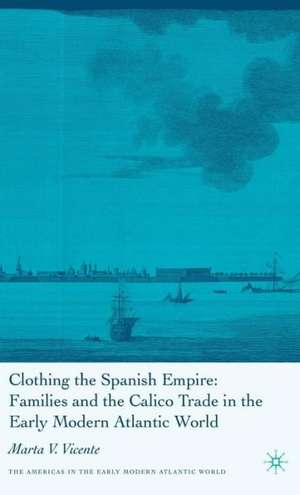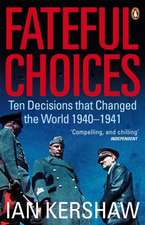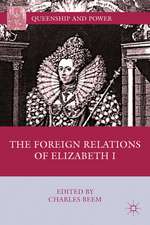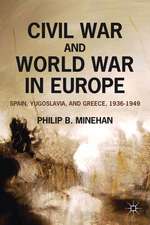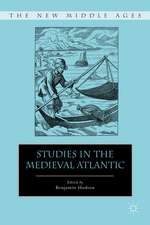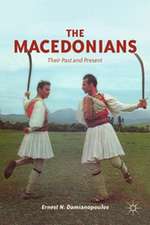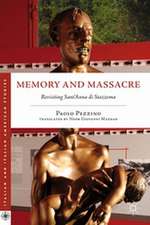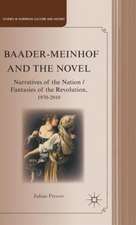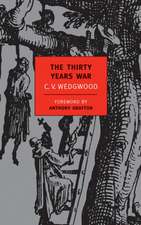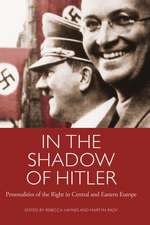Clothing the Spanish Empire: Americas in the Early Modern Atlantic World
Autor M. Vicenteen Limba Engleză Hardback – 8 iun 2007
| Toate formatele și edițiile | Preț | Express |
|---|---|---|
| Paperback (1) | 380.45 lei 6-8 săpt. | |
| Palgrave Macmillan US – 23 dec 2015 | 380.45 lei 6-8 săpt. | |
| Hardback (1) | 384.86 lei 6-8 săpt. | |
| Palgrave Macmillan US – 8 iun 2007 | 384.86 lei 6-8 săpt. |
Preț: 384.86 lei
Nou
Puncte Express: 577
Preț estimativ în valută:
73.65€ • 78.75$ • 61.40£
73.65€ • 78.75$ • 61.40£
Carte tipărită la comandă
Livrare economică 17 aprilie-01 mai
Preluare comenzi: 021 569.72.76
Specificații
ISBN-13: 9781403972262
ISBN-10: 1403972265
Pagini: 189
Ilustrații: IX, 189 p.
Dimensiuni: 140 x 216 x 17 mm
Greutate: 0.34 kg
Ediția:2006
Editura: Palgrave Macmillan US
Colecția Palgrave Macmillan
Seria Americas in the Early Modern Atlantic World
Locul publicării:New York, United States
ISBN-10: 1403972265
Pagini: 189
Ilustrații: IX, 189 p.
Dimensiuni: 140 x 216 x 17 mm
Greutate: 0.34 kg
Ediția:2006
Editura: Palgrave Macmillan US
Colecția Palgrave Macmillan
Seria Americas in the Early Modern Atlantic World
Locul publicării:New York, United States
Cuprins
Acknowledgements Abbreviations Introduction Family and the Calico Trade in the Spanish Empire The Personal is Commercial: Women and Family in the Race to Make Calicoes A Microcosm of Families: Workers, Factories, Owners The Craze for Calicoes: Selling Fashion in Spain and America From Barcelona to Veracruz: Clothing the Spanish Empire Conclusion
Recenzii
"This lively, innovative, fascinating study shows just how important the family was in the calico trade of the early modern Atlantic world. This important book rethinks not just the history of the family but also some core assumptions of economic history; it is a remarkable achievement."
- Barry Reay, Professor of History, University of Auckland (New Zealand), and author of Microhistories: Demography, Society, and Culture in Rural England, 1800-1930
"Marta V. Vicente has written a history of calico as lively, colorful, and vivid as the printed fabrics themselves. Using a model of family and household to explore a crucial period in economic history, she presents the stories of families whose networks of blood radiated from the industrial and commercial center of early modern Barcelona to span the Atlantic world. This history is not limited to Spain and its empire, however, for Vicente questions traditional assumptions about the development of industrial capitalism, such as the mutual antagonism of workshops and factories, the economic functions of guilds, the significance of social capital, and the roles of sentiment and emotion in economic adventures."
- Mary Elizabeth Perry, Professor of History, Occidental College
"This book makes us rethink Spain's weak industrialization as Vicente vividly demonstrates the strength and innovation of Barcelona's calico industry. However, more than providingjust an economic history, by viewing the calico industry through the lens of family history, Vicente has unraveled the changing fortunes and fashions of the men and women of eighteenth century Spain."
- Allyson M. Poska, Associate Professor of History, and author of Women and Authority in Early Modern Spain
"Examining the calico industry during the eighteenth century by bringing in family and gender history, Vicente provides a depth of analysis unequalled by any other study of the textile trade and fashion in the early modern Spanish empire. Meticulously researched and lucidly presented, this book greatly deepens our understanding of the complex role of women and the family within the contours of one of the most vibrant industries of the eighteenth century. Readers of the stories of familial and commercial businesses that Vicente weaves into her study will be enriched by this careful piece of social history."
- Sherry Velasco, Professor of Spanish, University of Southern California
- Barry Reay, Professor of History, University of Auckland (New Zealand), and author of Microhistories: Demography, Society, and Culture in Rural England, 1800-1930
"Marta V. Vicente has written a history of calico as lively, colorful, and vivid as the printed fabrics themselves. Using a model of family and household to explore a crucial period in economic history, she presents the stories of families whose networks of blood radiated from the industrial and commercial center of early modern Barcelona to span the Atlantic world. This history is not limited to Spain and its empire, however, for Vicente questions traditional assumptions about the development of industrial capitalism, such as the mutual antagonism of workshops and factories, the economic functions of guilds, the significance of social capital, and the roles of sentiment and emotion in economic adventures."
- Mary Elizabeth Perry, Professor of History, Occidental College
"This book makes us rethink Spain's weak industrialization as Vicente vividly demonstrates the strength and innovation of Barcelona's calico industry. However, more than providingjust an economic history, by viewing the calico industry through the lens of family history, Vicente has unraveled the changing fortunes and fashions of the men and women of eighteenth century Spain."
- Allyson M. Poska, Associate Professor of History, and author of Women and Authority in Early Modern Spain
"Examining the calico industry during the eighteenth century by bringing in family and gender history, Vicente provides a depth of analysis unequalled by any other study of the textile trade and fashion in the early modern Spanish empire. Meticulously researched and lucidly presented, this book greatly deepens our understanding of the complex role of women and the family within the contours of one of the most vibrant industries of the eighteenth century. Readers of the stories of familial and commercial businesses that Vicente weaves into her study will be enriched by this careful piece of social history."
- Sherry Velasco, Professor of Spanish, University of Southern California
Notă biografică
MARTA VICENTE is Assistant Professor in History and Women's Studies at the University of Kansas, USA.
